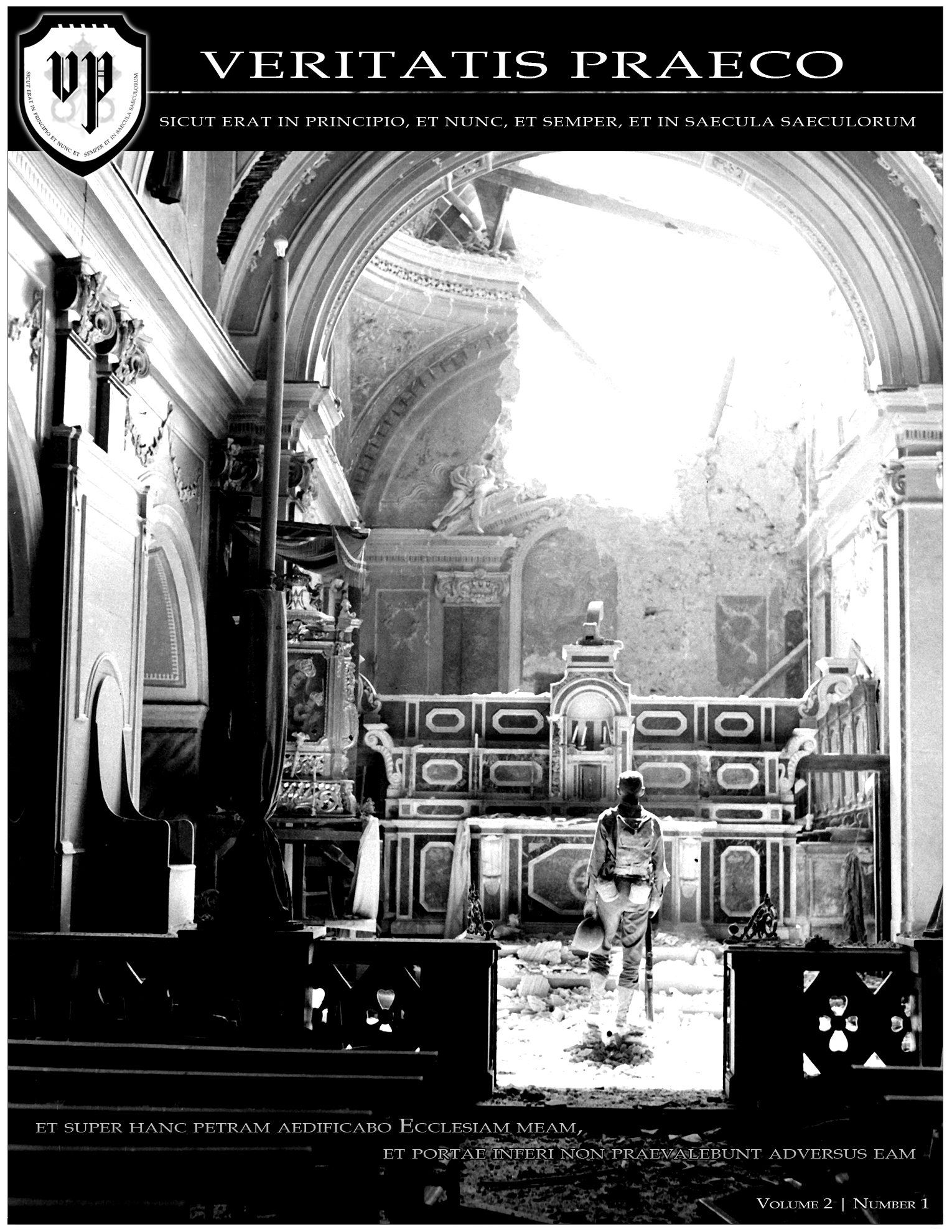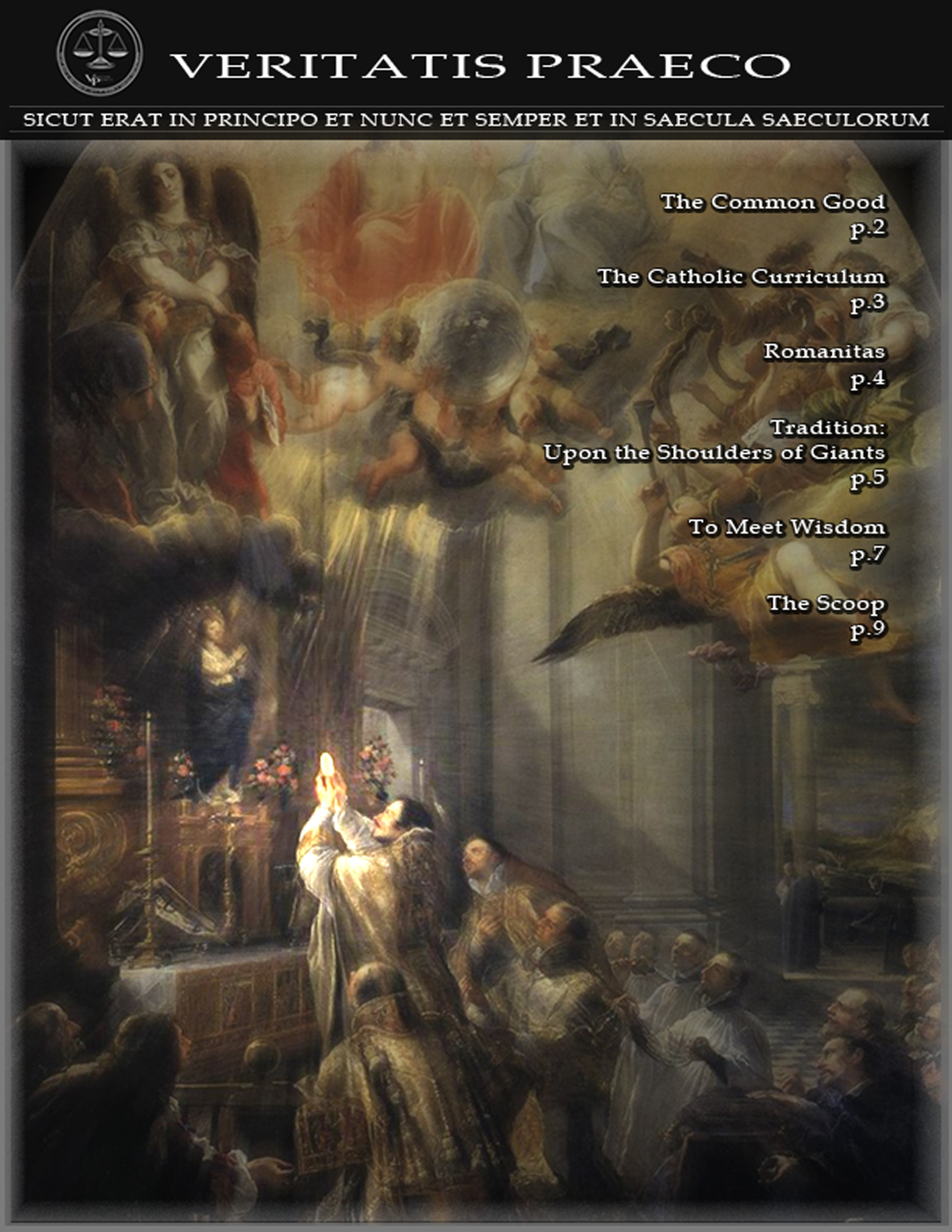An Underappreciated Treasure
Sin has always been a human weakness ever since the fall of man from God’s grace when Adam and Eve committed the “original sin.” However, contrary to what the Manicheans believe, sin is not a part of human nature nor is the body some evil material entrapment for the soul made by an imperfect god; rather, human nature, which includes both body and soul, is intrinsically good. Sin is then not a natural inclination towards something which is evil; instead, sin is a disordered attachment to certain things in which an element of the good is perceived, for all things, since they are created by an infinitely good God, have an intrinsically good quality. The problem of sin does not come in the recognizing of this good quality but in the inordinate apprehension of this finite good as the object of one’s good contrary to that ultimate Good in which man reaches his highest perfection, namely God. Fortuitously, the sacrament of penance provides man with an opportunity to turn away from lesser goods and to recognize that finite goods should lead man to the one infinite Good. Although penance is helpful in rightly ordering man’s passions, it does not completely prepare man for union with God, since it does not purge him of the punishment due to his inordinate desires. Providential Wisdom has thus provided man with the Catholic Church’s doctrine and practice of indulgences which further accommodates man’s journey to God by remitting the temporal punishment due to sin.
Unfortunately, not many people, even among Catholics, recognize this great gift and treasure of the Catholic Church and thus do not fully take advantage of it. A reason for the unpopularity of indulgences appears evident given the history of the Church: that is, the abuse of indulgences by Church officials who sought to sell indulgences and gravely overstepped their bounds in granting them, a practice which directly contributed to the Protestant Revolution. However, regardless of the failures and shortcomings – something no one is exempt from – of the Catholic hierarchy, there are still objective truths which no human error can negate. Therefore, the doctrine of indulgences, no matter how badly it has been abused in the past, should be viewed as the great treasure that it is, and not frowned upon because of some misguided actions. The “grittiness” of Catholicism, as George Weigel calls it, will always be a part of the Church precisely because of human weakness; but in any case, the Church has recognized this error and has seen fit, in light of the previous abuse of indulgences, to take measures to prevent their future abuse.
According to Indulgentarium Doctrina, “an indulgence is the remission before God of the temporal punishment due sins already forgiven as far as their guilt is concerned, which the follower of Christ with the proper dispositions and under certain determined conditions acquires through the intervention of the Church which, as minister of the Redemption, authoritatively dispenses and applies the treasury of the satisfaction won by Christ and the saints.” As evidenced by this definition, indulgences are very closely related to the sacrament of penance, and indeed absolution of one’s sins is required before an indulgence may be received; where penance is the removal of guilt and a restoration of God’s grace an indulgence is the satisfying of the punishment that is demanded of a sinner by God’s justice. The correlation between penance and indulgences is further evidenced by the fact that both practices are derived from the same Bible verse: “I will give you the keys of the kingdom of heaven, and whatever you bind on earth shall be bound in heaven, and whatever you loose on earth shall be loosed in heaven” (Matthew 16:19).
That being said, every offense against God, whether venial or mortal, incurs a punishment equal to the magnitude of the sin. In the case of venial sin the punishment incurred is temporal since it does not destroy charity but only weakens it. While in the case of mortal sin the punishment is eternal since it destroys charity within the heart and since it is a grave disordering of the offender towards something lesser than God as his good. Fortunately, through God’s mercy, the sacrament of penance remits the eternal punishment of sin and restores the penitent to a state of grace. However, every sin reflects a disordered attachment to the things of the world, an attachment which must be purged through temporal punishment in order that man might achieve the ultimate end for which he has been created, that is, the union with God in heaven. This purification of the soul may either take place after death in the state of Purgatory or on earth through acts of mercy, charity, prayer, most especially the practice of indulgences. However, it should be understood that in Catholic doctrine an indulgence is not a removal of the punishment but rather it is the active compensation for the debt of sin rather than the passive compensation that is expected in Purgatory.
According to the Catechism of the Catholic Church an indulgence, either plenary or partial, may be granted by the Church to a penitent upon the successful completion of both the sacrament of penance and certain approved charitable works which are beneficial to the common good of the Church community. A plenary indulgence provides complete expiation from the temporal punishment of sin while a partial indulgence only limitedly absolves one from punishment. In the past Church officials would assign certain lengths of time to partial indulgences when granting them, signifying the amount of punishment that had been expunged. In his address Indulgentarium Doctrina, Pope Paul VI ended the practice of assigning lengths of time to partial indulgences in order to promote the act of charity to which the indulgence is attached. Thus, partial indulgences are no longer designated when dispensed with a particular determination of time but rather the act of charity itself serves as the measure of punishment remitted. (A complete list of the norms for the practice of indulgences can be found in Indulgentarium Doctrina).
As mentioned earlier, the Church is given the authority to grant indulgences from Christ when He gives Peter the keys to the kingdom of heaven in Matthew 16:19. With this authority comes the responsibility of safeguarding and dispensing with as seen fit the great treasure of merits achieved by Christ, the saints, and all those members of the mystical body of Christ who have suffered unjustly “whereby a multitude of punishments would have been paid, had they been incurred,” says St. Thomas Aquinas. It is through these merits that an indulgence is able to remit the temporal punishment due for the satisfaction of sins. Thus it is no longer the indebted sinner who must pay the debt of punishment but rather Christ and his saints who have already paid the debt since, as St. Thomas says, “so great is the quantity of such merits that it exceeds the entire debt of punishment due to those who are living at this moment: and this is especially due to the merits of Christ…”
However, it must be asked, if Christ already paid the debt of punishment why must man receive the sacrament of penance and earn indulgences in order to have his punishment remitted? Why can’t man just, as so many Protestants believe, accept Christ as his Lord and be saved?
Again, St. Thomas provides some answers. First, through His Passion, Christ provided humanity with a cause by which the forgiveness of sins and the remittance of punishment are made possible. This cause acts “…as a kind of universal cause of the forgiveness of sins, it needs to be applied to each individual for the cleansing of personal sins” through a particular cause, namely, the sacraments and other external acts such as indulgences. Christ’s saving power comes to us through the particular cause of the Catholic practice of the sacraments through the use of external signs and ceremonies precisely because of the very nature of human beings. That is, humans are both corporeal and spiritual beings and as such are led to the enduring things of the spiritual realm through the tangible and sensible things of this world. This is best evidenced by the Incarnation whereby God became man and in so doing reconciled man to God. Thus, Christ himself instituted the sacraments, which are derived from both Scripture and Tradition, in order that the faithful might effectively receive His saving merits. That is not to say, however, that doing so was a necessity for God but rather that God chose to give His Church the tangible means of salvation, the sacraments, out of His divine wisdom.
Therefore, indulgences are truly efficacious appropriations of the merits of Christ and His saints with the power to satisfy the temporal punishment due to sins. In the words of Pope Paul VI, the merits of the mystical body of Christ have been “…offered as they were so that all of mankind could be set free from sin and attain communion with the Father.” Accordingly, Catholics should realize that this great treasure of the Church is at the disposal of the faithful and that it would behoove them to take advantage of the merits which have been gained for them.
Suggested further reading:
Indulgentarium Doctrina-Pope Paul VI
Summa Theologiae: Supplementum Tertiae Partis: Question 25 and Question 15-St. Thomas Aquinas









For the Scriptural roots of indulgences you might also consult “Reedeem Your Sins by the Giving of Alms: Sin, Debt, and the “Treasury of Merit” in Early Jewish and Christian Tradition” by Gary A. Anderson in Letter and Spirit, volume 3, The Hermeneutic of Continuity.